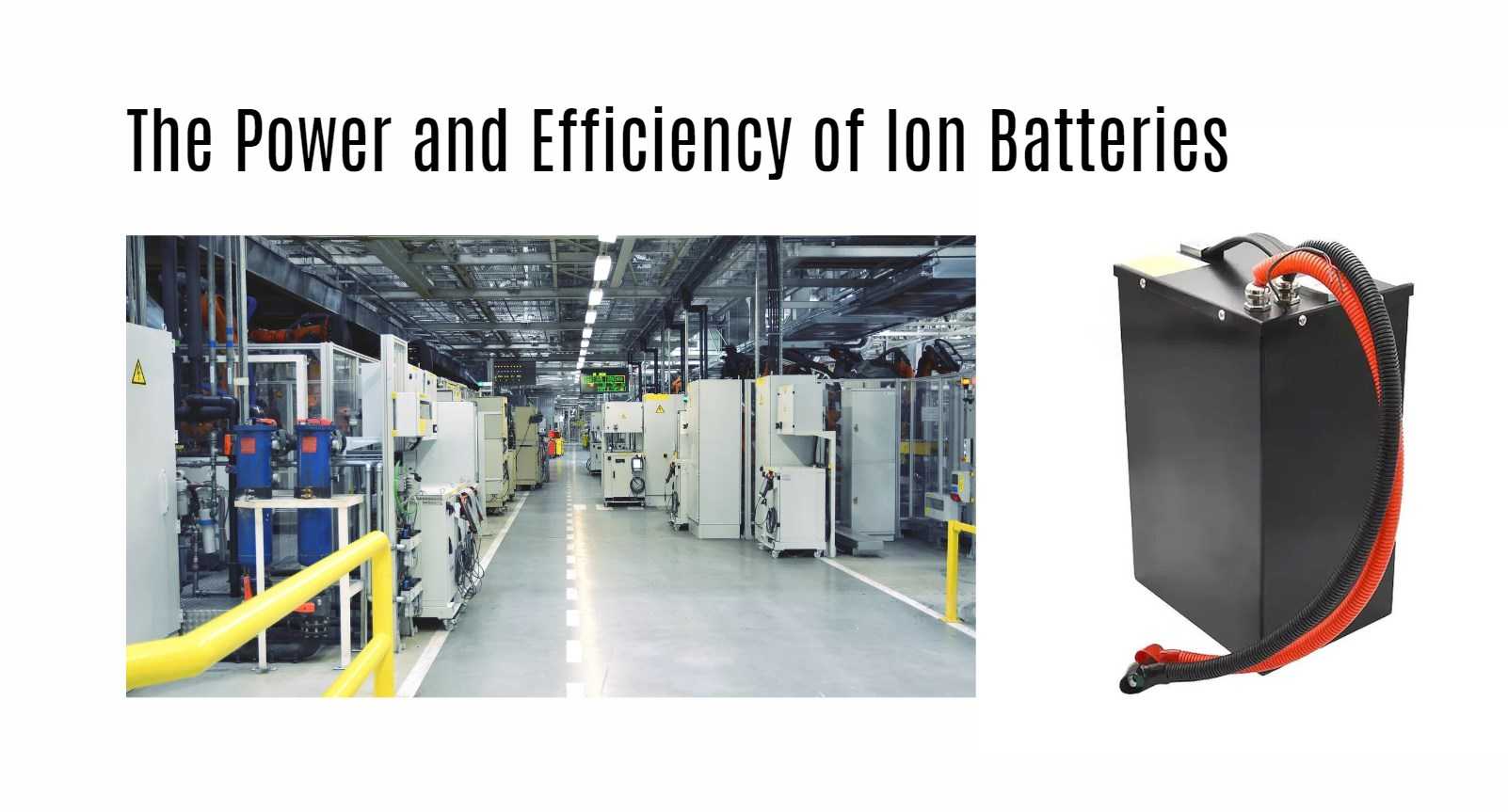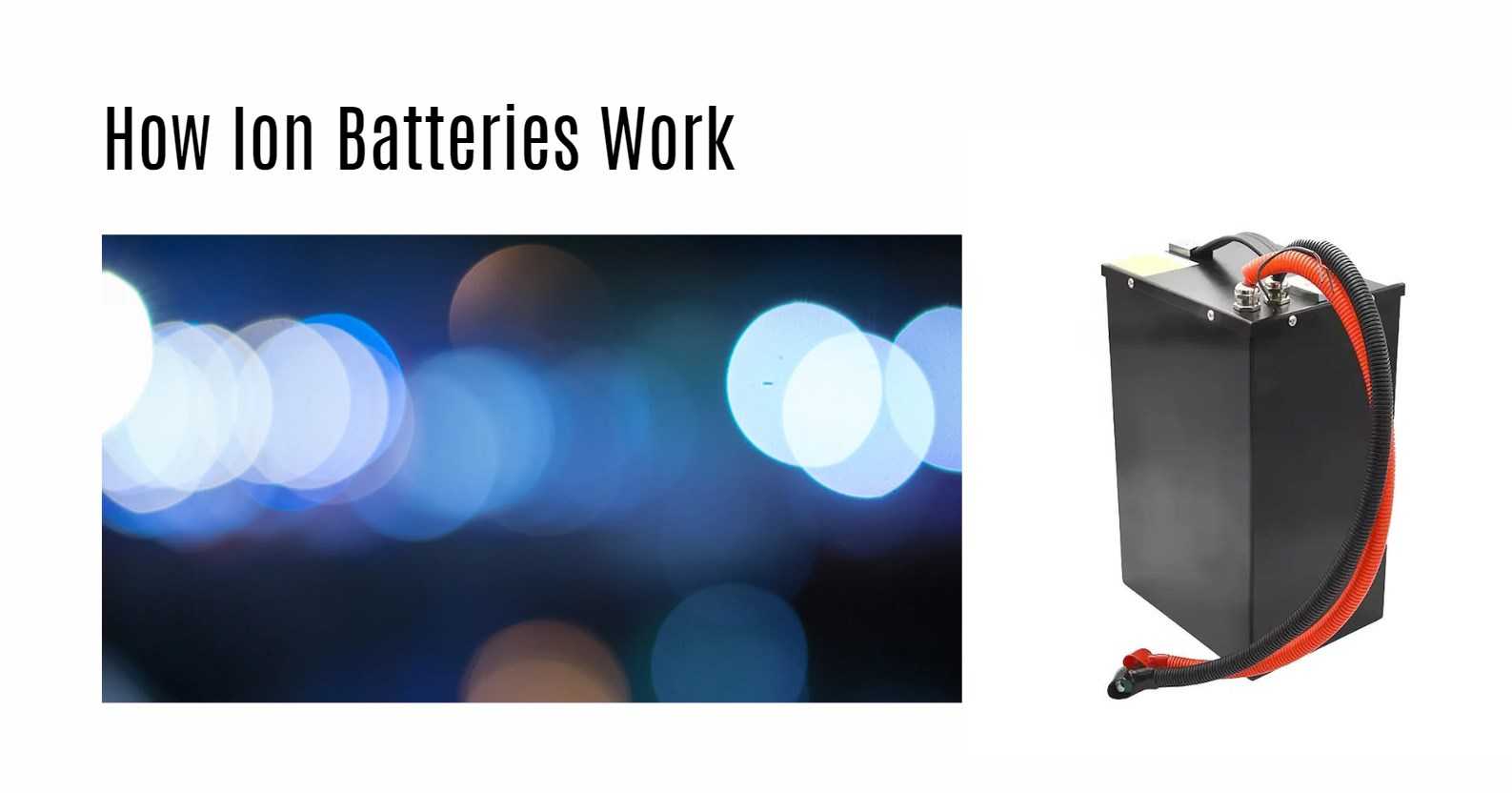Welcome to the era of technology where we rely on batteries for almost everything in our daily lives. From smartphones and laptops to electric cars, these devices require a reliable and powerful source of energy to function properly. This is where ion batteries come into play; they have revolutionized the way we use our devices by providing high power density, longer lifespan, and better efficiency. In this blog post, we will explore how ion batteries work, their benefits and drawbacks, as well as their potential future developments that could change the world as we know it! So let’s dive in and discover the fascinating world of ion batteries together!
How Ion Batteries Work
Ion batteries are rechargeable energy storage devices that operate on the principle of electrochemical reactions. They consist of two electrodes, an anode and a cathode, separated by an electrolyte solution. When the battery is charged, lithium ions move from the cathode to the anode through the electrolyte and back again when discharged.
The process begins at the positive electrode or cathode which contains metal oxide compounds such as cobalt oxide or nickel manganese cobalt oxide. These compounds release positively charged lithium ions during charging which then move towards negative electrode or anode made up of graphite that can absorb these ions.
Wholesale lithium golf cart batteries with 10-year life? Check here.
During discharge, a chemical reaction takes place in which lithium ions flow back to the positive electrode through a conductive medium called ion-containing liquid electrolytes. This movement creates electricity which can be used to power various electronic devices including smartphones, laptops and electric cars.
Ion batteries work by utilizing lithium-ion technology to store electrical energy for later use with high efficiency and long-lasting performance capabilities.
Want OEM lithium forklift batteries at wholesale prices? Check here.
The Benefits of Ion Batteries
Ion batteries have become increasingly popular over the years due to their numerous benefits. One of the most significant advantages is their high energy density, which makes them capable of holding more energy in a smaller and lighter package compared to other battery types.
Another benefit of ion batteries is their long lifespan. They can last for several years without needing replacement, making them ideal for use in devices that require constant power supply such as electric vehicles and smartphones.
They are also very efficient since they lose minimal charge when not in use, unlike other batteries that tend to discharge quickly even when not being used. This means users do not need to recharge regularly or worry about losing stored power.
In addition, ion batteries are environmentally friendly since they do not contain toxic chemicals like lead-acid or nickel-cadmium batteries. They can be easily recycled, reducing waste pollution and promoting sustainability.
Ion batteries provide fast charging times which ensures quick access to power whenever needed. It’s no wonder why many industries continue to invest heavily in this technology as it provides solutions to various challenges related to modern-day living.
The Drawbacks of Ion Batteries
Despite the many benefits of ion batteries, they also have their drawbacks that must be taken into account. One of the biggest concerns is their tendency to overheat and even catch fire if not handled properly.
This risk is particularly high when charging or discharging at a too rapid rate, which can cause thermal runaway in the battery cells. This issue has caused several incidents with smartphones and laptops in recent years, leading to product recalls and safety warnings.
Another drawback of ion batteries is their limited lifespan. With every charge-discharge cycle, the battery loses a small amount of its capacity until it eventually becomes unusable. This means that after a certain number of cycles (usually around 500-1000), the battery will need to be replaced.
Additionally, ion batteries are still relatively expensive compared to traditional lead-acid batteries, making them less accessible for some applications such as large-scale energy storage systems.
While lithium-ion batteries are more environmentally friendly than other types of batteries due to their lack of toxic heavy metals like lead and cadmium; they still require proper disposal methods since they contain harmful chemicals like cobalt and nickel.
While there are certainly some significant drawbacks associated with ion batteries; these issues can be mitigated through proper handling protocols and further research & development efforts aimed at improving performance characteristics whilst reducing costs.
The Future of Ion Batteries
The future of ion batteries is looking bright as more advancements are being made in the technology. One of the most exciting developments is the use of solid-state electrolytes, which can replace traditional liquid electrolytes that have been known to cause safety issues.
Solid-state electrolytes have a higher energy density and are less likely to catch fire or leak compared to their liquid counterparts. This means that they could potentially make electric vehicles safer and more efficient.
Another area where ion batteries are expected to excel in the future is grid-scale energy storage. As renewable energy sources such as wind and solar become more prevalent, there will be a greater need for large-scale energy storage solutions. Ion batteries offer a viable solution due to their high capacity and ability to charge quickly.
Researchers are also exploring ways to recycle ion batteries once they reach the end of their life cycle. By recovering valuable materials from used batteries, we can reduce our reliance on mining new resources while also minimizing waste.
It’s clear that ion batteries have a bright future ahead with many potential applications in various industries. With ongoing research and development, we can continue unlocking even more benefits from this powerful technology.
Conclusion
The development of ion batteries has revolutionized the way we see energy storage and consumption. With their high efficiency, light weight, and long lifespan, they have become a popular choice in various industries such as transportation and electronics.
Despite some drawbacks like safety concerns and cost issues associated with them, these limitations are being addressed by researchers who continue to innovate on better materials and manufacturing processes. The future of ion batteries looks bright with promising advancements in solid-state lithium-ion technology.
As we move towards a more sustainable world where renewable energy sources are becoming increasingly important, ion batteries will play an even greater role in enabling us to store this energy for later use. The potential applications for ion batteries are endless – from powering electric vehicles to storing solar power at home.
It’s clear that ion batteries have come a long way since their inception over 30 years ago. As technology continues to evolve, it’s exciting to think about what new possibilities lie ahead for this powerful source of energy storage.








